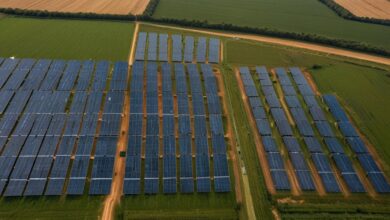Labour’s Election Triumph: Agriculture and Green Growth Expectations Soar

Labour’s victory in the 2024 UK general election has raised expectations in the agriculture sector and the push towards green growth. Farmers and rural businesses in East Anglia seek assurances on support schemes, while Labour’s focus on clean energy aims to position the UK as a global leader in green development.
Labour’s Election Win and Its Implications for Agriculture and Green Growth
After a decisive victory in the 2024 UK general election, Labour faces significant expectations from East Anglian farmers and rural businesses. The agriculture sector is currently grappling with volatile markets, high costs, and a shift from EU-era subsidies to new post-Brexit environmental incentives. Regional countryside leaders are calling for urgent support to restore farmers’ confidence amidst these challenges.
Charles Hesketh, the National Farmers’ Union’s (NFU) regional policy manager for the East of England, emphasized the need for assurances that current schemes like the Sustainable Farming Incentive and the seasonal workers scheme will remain intact. NFU’s president, Tom Bradshaw, highlighted priorities such as increasing the agricultural budget to bolster food security and farm business confidence.
Mark Riches, acting regional director of the Country Land and Business Association, urged the new government to support the rural economy, which he noted is 16% less productive than the national average. He advocated for a robust strategy to close this productivity gap.
Concurrently, Labour’s victory marks a significant shift towards green growth policies. Labour leader Sir Keir Starmer has placed green development at the forefront of his agenda, aiming to position the UK as a “clean energy superpower.” The new administration plans to restore private sector confidence in clean energy through stable policy frameworks and incentives.
Labour will deploy £23.7 billion in two new investment bodies: Great British Energy and the National Wealth Fund, designed to spur private-sector investment in clean energy. Additionally, Labour aims to decarbonize electricity generation by 2030 and streamline renewable energy project approvals.
While these plans face potential political backlash, Labour seeks to gain political support by emphasizing job creation and local benefits from new energy projects. The next few years will reveal the impact of these policies on the UK’s agriculture and green energy sectors.








